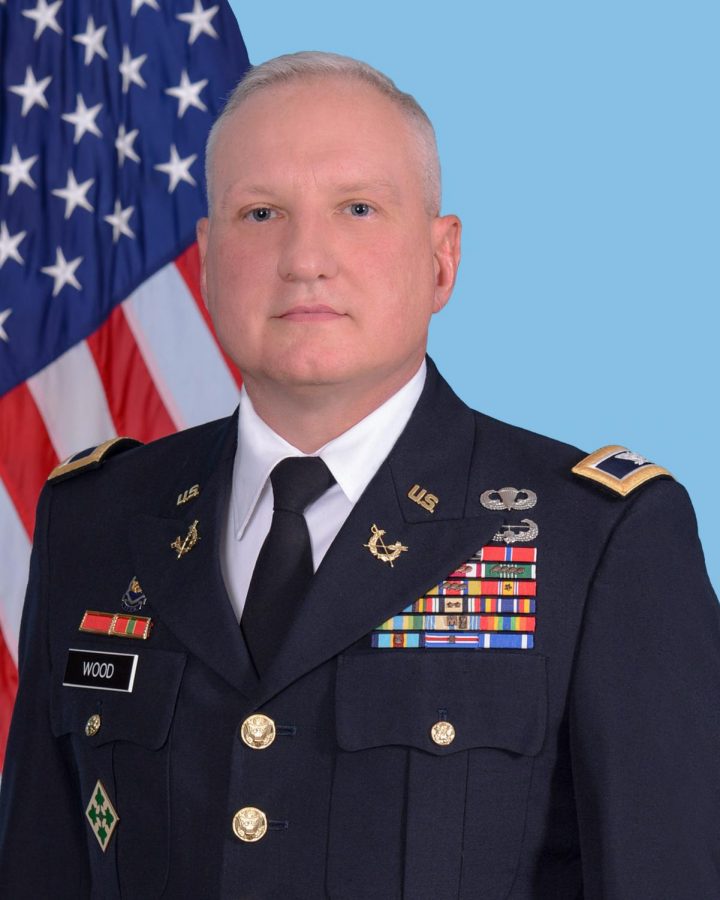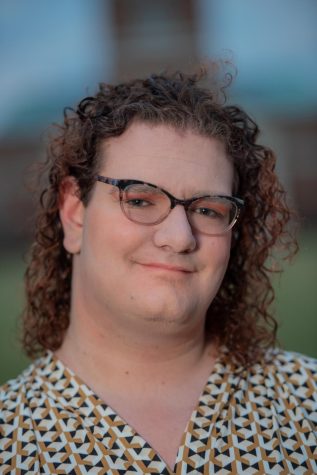Deacon Profile: Brad Wood
November 11, 2021
Colonel Brad Wood is an alumnus of Wake Forest who graduated in 1992 with a degree in history. During his time at Wake Forest, he was involved in the Reserve Officers Training Corps (ROTC). He then went on to law school at the University of North Carolina at Chapel Hill, though he stresses his allegiance to Mother So Dear never wavered.
Wood is currently in the reserve corps for the U.S. Army and had just returned from duty when we spoke. He will be speaking on Wake Forest’s campus for Veterans Day.
Why did you go to law school?
When I graduated from Wake Forest in 1992, we had just had the first Gulf War with Saddam Hussein and had prevailed in that. Then, the Soviet Union fell apart. So, the Cold War ended, and the government decided to cut the military by a third. They basically said “we can’t even deal with all the lieutenants that we have right now because we’re cutting the force. The threat is gone. So, if you want to go off and do law school or medical school or divinity school, the Army can wait. Go right ahead, and then call us when you’re done.” So that’s what I did.
What was your experience like in the military after you graduated from law school?
I served five years of active duty. I went back into the service almost right after graduating from law school. I took the Bar, then got married to my sweetheart from Wake Forest and went off to the officer basic course for the Judge Advocate General’s (JAG) Corps, which I’m still in. I finished with that right before Christmas of 1995. Then, after New Years’ in 1996, I was stationed in Bavaria for three years. My wife was with me, and we had our first kid there. Then I was deployed to Bosnia as part of Operation Joint Endeavor, which was a peacekeeping mission in the Yugoslavian Republic, for six months. That was interesting. We left Germany and then my next assignment was at Fort McPherson, which was in Atlanta. I was there for two years, and then I decided to leave active duty and do something else.
Why did you leave and then why did you come back?
I’m an Army brat. I was born at Fort Bragg and spent my entire childhood around the Army. So, we moved every two or three years. That was an interesting way to grow up, but it was not how I wanted to raise my kids. So, my wife and I left active duty and got a job at a law firm in Winston-Salem, and we have been here ever since.
I joined the Army Reserve in August of 2002, not long after the attacks of Sept. 11. I’ve been in the Army Reserve ever since. I’ve served in different units across the Carolinas, and my last assignment was in Puerto Rico. I served a year in Iraq, and spent March of 2008 to February of 2009 in Baghdad. I’ve just had a lot of different duties and responsibilities in the almost 20 years I’ve been in the reserves.
Did Wake Forest adequately prepare you for the Army?
The education at Wake Forest has prepared me not only for my duties and responsibilities in the Army but for life. To this day, I’m extremely happy I chose Wake Forest versus other places that I could have gone
What were some of the biggest challenges that you faced in the JAG corps, and how did you overcome them?
I’m always trying to do the right thing at the right time and for the right reasons. There are always pressures. Sometimes, you may want to take an easy way out versus the path that may be more difficult and strenuous. In the long run, though, the difficult path will assist the army.
I’m also always trying to make sure that the soldiers and the commanders that I advise understand what their legal responsibilities are. They’re not required to take my advice, but I try to let them know what the legal and ethical boundaries are. I let them know what we need to do and how we can accomplish the mission in the right way. Sometimes, they may not be able to do it the way that they want to, but it’s my job to give them a path to get to where they want to be legally, ethically and morally.
I’ve never run into anybody in the military in a leadership position that wants to do the wrong thing. Everybody wants to do the right thing and get there for the right reasons, but sometimes you just have to give people courses of action that can get them there properly.
What does Veterans Day mean to you?
My dad served for 23 years in the Army and served in Vietnam. My grandfather served in World War II, as did two of my grandfather’s brothers. One of those brothers was killed in action. Friends of mine lost their lives in Iraq. I know this is Veterans Day and not necessarily Memorial Day, but I think it’s really important to take some time out and to pay tribute to people that have been willing to drop everything and put everything on the line for the nation.
For Veterans Day, I just think it’s important to take stock of and respect people that have been willing to write a blank check to the nation, up to the value of their life. That includes someone who served for 20 years who never had to go off to war and into harm’s way, because they were there and ready, willing and able to do it. It also includes somebody that serves six, seven or eight tours in Iraq and Afghanistan and has seen things that they can’t ever forget. In my mind, either one is honorable service. It behooves us to take a little bit of time to respect all those people.
What does it mean to you to come back to your alma mater and deliver an address for Veterans Day?
It’s humbling and really invigorating to be able to come back. I was the speaker a couple of years ago, so it’s not the first time I’ve done this. I really do enjoy coming back to a place where I grew up and passing along some wisdom and some life experience that I’ve gained. That makes me feel very good.
Editor’s Note: The transcript of this interview was edited for brevity and clarity.
















Elizabeth R Cheshire • Nov 11, 2021 at 10:14 pm
Brad, that was a wonderful article and I know everyone in your family is very proud of the man that you have b ecome. Thank you for your years of service. I’m glad to know you and to see how you’ve grown over the years.